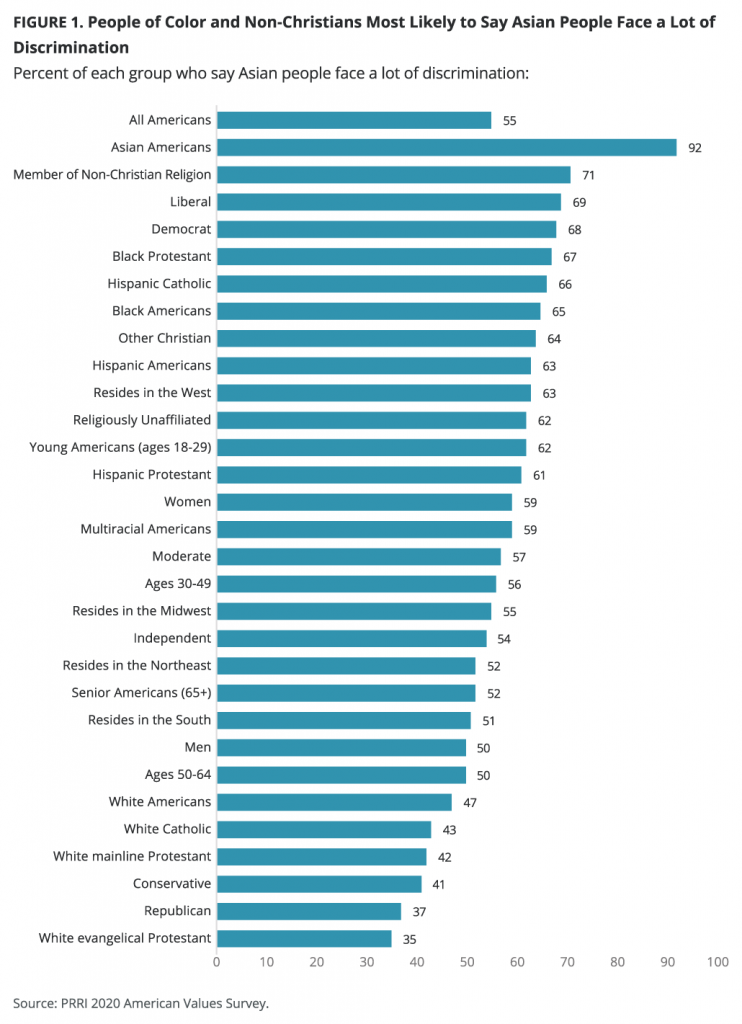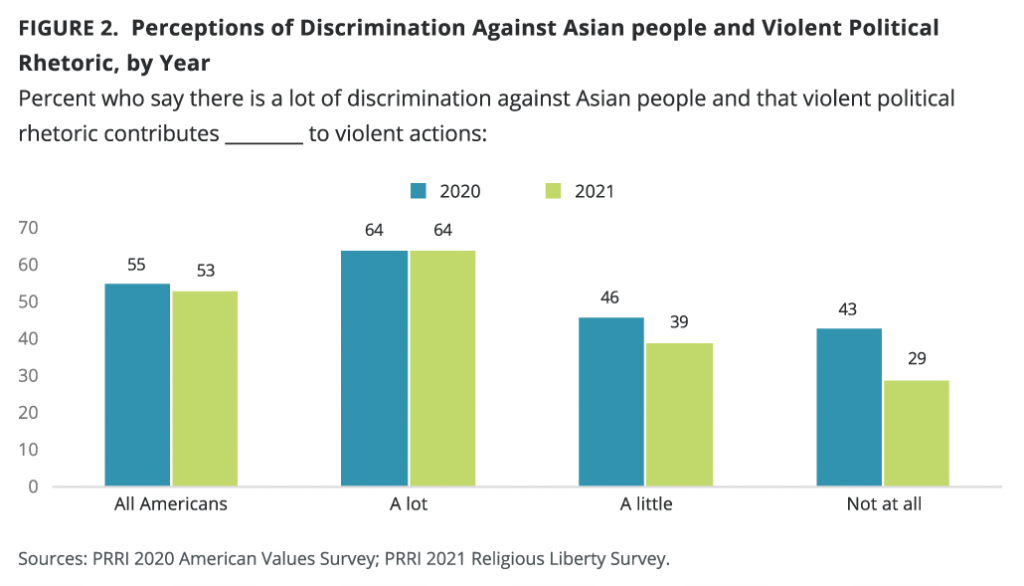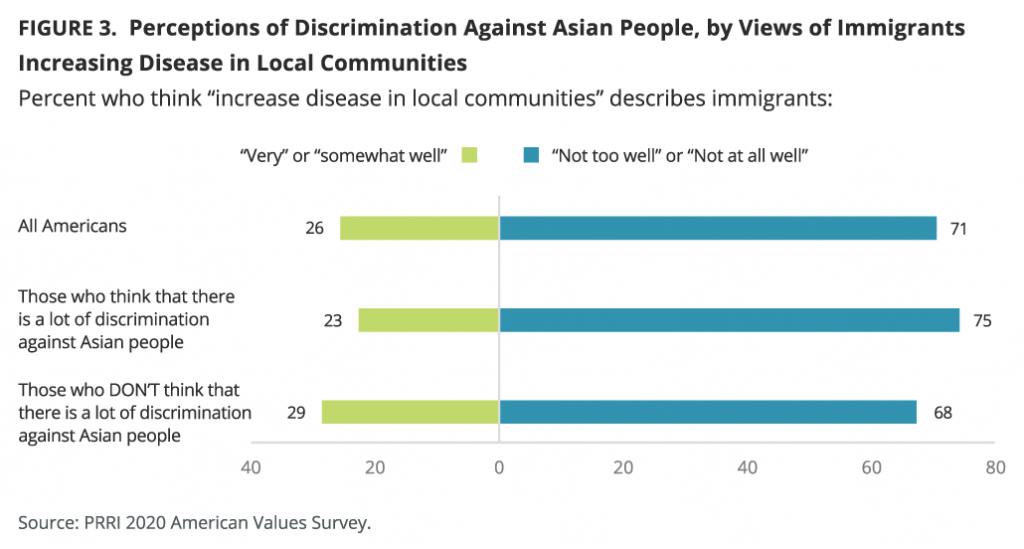A surge in hate crimes against Asians and Asian Americans prompted by racist rhetoric about the coronavirus pandemic has left people shocked across the country. There have been many reports of assaults on Asian Americans and people of Asian descent, particularly women and older Asian Americans, culminating most recently with the killing of eight people in Atlanta, six of them women of Asian descent. In fact, anti-Asian hate crimes have risen by as much as 150 percent since the start of the pandemic in numerous cities. Yet despite the rise of these incidents across the country, Americans are less likely to perceive a lot of discrimination against Asians compared to other race and ethnic groups.
Recent 2021 PRRI data shows that 53% of Americans think there is a lot of discrimination against Asian people, a notably lower percentage than those recorded against other minority racial groups, such as Black people (70%) and Hispanic people (63%). These perceptions remain similar to those found in September of 2020, when 55% of Americans said there was a lot of discrimination against Asian people. The same 2020 data reveals that younger Americans (62%), women (59%), those who live in the West (63%), Democrats (68%), and liberals (69%) are notably more likely to say there is a lot of discrimination against Asian people, compared to senior Americans (52%), men (50%), those who live in the South (51%), those who live in the Northeast (52%), those who live in the Midwest (55%), moderates (57%), independents (54%), conservatives (41%), and Republicans (37%). In addition, Asian Americans are nearly twice as likely as white Americans to say that there is a lot of discrimination against Asian people (92% vs. 47%), as are members of non-Christian religions compared to white evangelical Protestants (71% vs. 35%).

Previous studies have found a link between former president Donald Trump’s rhetoric referring to the coronavirus pandemic as the “Chinese virus” and an increase in anti-Asian hate online. PRRI asked a question in 2020 and 2021 about how much Americans believe that harsh and violent language in politics contributes to violent actions in society. Although individual characteristics vary among those who said this kind of rhetoric contributes “a lot,” “a little,” or “not at all” to violence in society, in 2021, a majority of Americans (60%) said that harsh and violent language in politics contributes “a lot” to violent actions in society, a percentage notably higher than the 51% recorded in 2020. Three in ten Americans (30%) said “a little” in 2021, similar to the 32% recorded in 2020. However, even in the wake of the aftermath of the January 6 riot at the U.S. Capitol, nine percent of Americans still said that harsh and violent language in politics does “not contribute at all” to violent actions in society in 2021 (a decline from 16% in 2020).
Despite the overall increase in connecting violent language to violent actions, there has been no change in this statistic among those who think there is a lot of discrimination against Asian people. The 2020 data shows that 64% of Americans who said that violent language contributes “a lot” to violent actions in society also think there is a lot of discrimination against Asian people, and this percentage is essentially the same in 2021. However, among those who said violent language contributes “a little” or “not at all,” perceptions of discrimination have decreased, from 46% and 43% in 2020 to 39% and 29% in 2021. This suggests that those who tolerate violent political rhetoric amid the rise of violence across the country are overlooking or ignoring discrimination against Asian people.

As the rise in anti-Asian sentiments and xenophobia are associated with the coronavirus pandemic, PRRI 2020 data also asked how well the statement “increase disease in local communities” describes immigrants who are coming to the U.S. While the vast majority of Americans (71%) do not think this term describes immigrants well, 26% think it does. Interestingly, Americans who think that there is a lot of discrimination against Asian people are more likely to think that “increase disease in local communities” DO NOT describe immigrants well than those who think there is a lot of discrimination (75% vs. 68%). By contrast, Americans who do not think that there is a lot of discrimination against Asian people are more likely to think that immigrants “increase disease in local communities” than those who think there is a lot of discrimination (29% vs. 23%).

To combat discriminatory behavior against people of certain backgrounds, the World Health Organization recommends that people “choose words carefully. The way we communicate can affect the attitudes of others.”